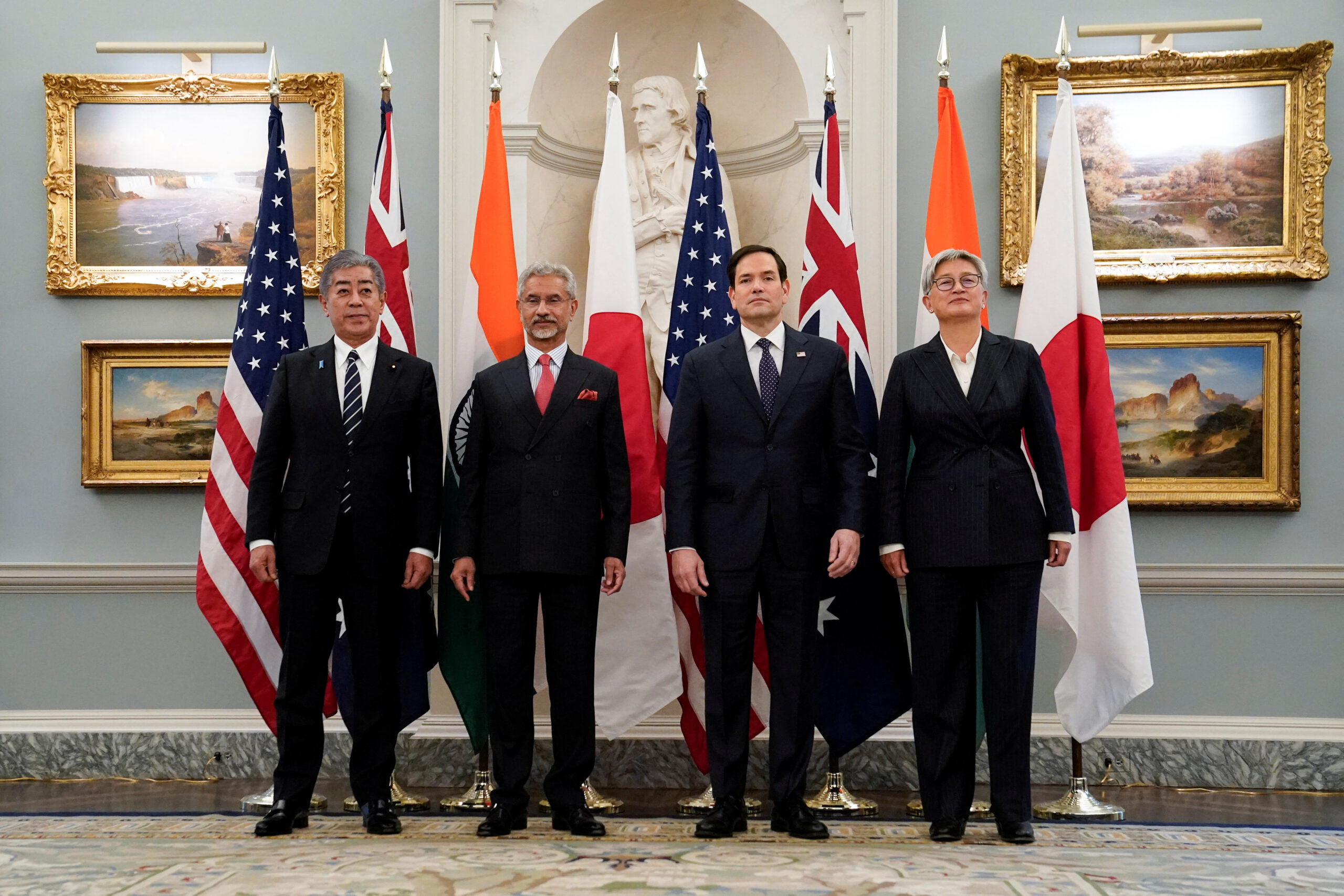
Quad Foreign Ministers’ Meeting 2025: India’s Assertive Stand on Terrorism
Why in News?
On July 1, 2025, the first Quadrilateral Security Dialogue (Quad) Foreign Ministers’ meeting since Operation Sindoor was held in Washington, D.C.. This meeting marked a significant moment in India’s diplomacy as External Affairs Minister Dr. S. Jaishankar addressed his counterparts from Australia, Japan, and the United States.
Dr. Jaishankar made a strong statement that India expects the Quad nations to support its position on terrorism, emphasizing that India reserves the sovereign right to defend itself and its citizens against terror threats. He further added that the global narrative must stop equating victims of terrorism with its perpetrators.
This message from India follows the successful counter-terror operation “Operation Sindoor”, conducted in May 2025, in which India neutralized several cross-border threats. India’s firm stance aligns with international legal norms and is part of its broader diplomatic strategy to ensure moral clarity in the global fight against terrorism.
Introduction
The Quad has evolved from a consultative forum into a strategic alliance shaping the Indo-Pacific order. The Indo-Pacific is now the geopolitical epicenter of global power dynamics, and the Quad stands at the heart of this alignment.
In this context, India’s growing role in the Quad is deeply significant. As a nation frequently targeted by cross-border terrorism, India has consistently called for a zero-tolerance approach to terrorism, including state-sponsored terror activities. At the July 2025 meeting, Dr. Jaishankar voiced a clear message: India will not allow moral ambiguity when it comes to acts of terror, and it expects its partners to support that clarity.
India’s diplomatic stance reflects not only regional security concerns but also its broader aspiration to be a norm-setter in international law and counter-terror frameworks.
What is QUAD?
The Quadrilateral Security Dialogue (Quad) is an informal strategic grouping of four democracies—India, the United States, Japan, and Australia—formed to ensure a free, open, inclusive, and rules-based Indo-Pacific region.
Origin and Purpose
- Initially proposed in 2007 by Japanese PM Shinzo Abe.
- Revived in 2017 amid growing concerns over China’s increasing assertiveness.
- Focused on maritime security, cyber resilience, infrastructure development, and counter-terrorism.
- Quad is not a military alliance, but a diplomatic and strategic consultation platform.
Member Countries and Their Interests
Country | Role in Quad | Strategic Interests |
🇮🇳 India | Military & regional security power | Counterterrorism, Indian Ocean security, sovereignty |
🇺🇸 United States | Pacific & global superpower | Maintain Indo-Pacific dominance, counter Chinese expansion |
🇯🇵 Japan | Maritime and tech leader | Trade route stability, maritime security |
🇦🇺 Australia | Economic and geopolitical partner | Economic diversification, uphold democratic values |
Each country brings its own strategic priorities but shares a common concern: preserving peace and security in the Indo-Pacific against authoritarian threats and grey-zone warfare.
This Year’s Agenda (2025)
At the 2025 Washington meeting, the following key points were highlighted:
- Post-Operation Sindoor Solidarity
India urged Quad partners to recognize its right to defend itself against terrorism. It sought explicit support for its proactive security policies and emphasized that equating the state with non-state actors is legally and morally wrong.
- Maritime Domain Awareness
With increasing Chinese activity in the South China Sea and Indian Ocean, the Quad discussed joint patrols, real-time intelligence sharing, and collaborative naval drills.
- Countering Cyber Threats and AI Risks
Quad nations pledged cooperation on secure digital infrastructure, 5G networks, AI regulation, and data protection laws to build technological resilience.
- Infrastructure & Investment Initiatives
The Quad reaffirmed its commitment to providing an alternative to China’s Belt and Road Initiative (BRI) by co-financing development projects in Southeast Asia and Africa.
- Climate Action and Disaster Relief
From clean energy technologies to disaster response coordination, the Quad’s climate agenda was expanded to promote sustainable development in vulnerable regions.
Operation Sindoor – Strategic Context
Operation Sindoor, conducted by India in May 2025, was a pre-emptive strike on terror infrastructure across the border. With verified intelligence inputs and adherence to international humanitarian law, Indian forces dismantled multiple training camps and terror hideouts.
Strategic Highlights:
- Precision-led and proportionate in response.
- Conducted in accordance with Article 51 of the UN Charter, allowing self-defence.
- Signaled India’s growing capability for quick and decisive military response.
- Lauded domestically and cautiously acknowledged internationally.
At the Quad meeting, this operation formed the backdrop for India’s demand for clearer alignment with partners on counter-terrorism strategies.
Legal & Strategic Significance
India’s emphasis on sovereignty and self-defence is rooted in international law:
Article 51 of the UN Charter:
“Nothing in the present Charter shall impair the inherent right of individual or collective self-defence if an armed attack occurs…”
UNSC Resolutions:
- Resolution 1267: Sanctions on terrorist individuals/entities.
- Resolution 1373: Calls for international cooperation in combating terrorism, including cutting off funding and denying safe haven.
India used these provisions to legally justify Operation Sindoor and frame its diplomatic messaging as aligned with global norms.
Conclusion
India’s participation in the Quad Foreign Ministers’ Meeting in July 2025 was not just diplomatic—it was declarative. Dr. Jaishankar’s clear articulation that “India has the right to defend and will exercise that right” framed the meeting’s discourse. With rising global instability, India’s position was not merely about self-defence—it was a call to uphold moral clarity in international relations.
By refusing to blur the lines between victims and perpetrators, India urged its partners to recalibrate global counter-terrorism narratives. The Quad, as a collaborative platform, now must align not only on maritime freedom or trade, but also on security values and legal norms.
This makes the 2025 Quad meeting a model case study for all CLAT 2026 aspirants seeking to master both legal reasoning and international affairs.




